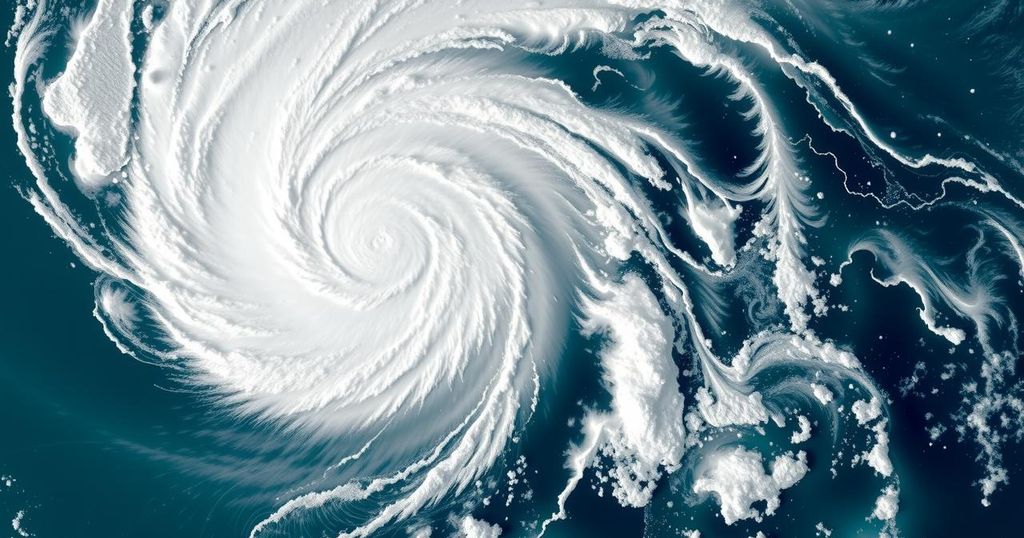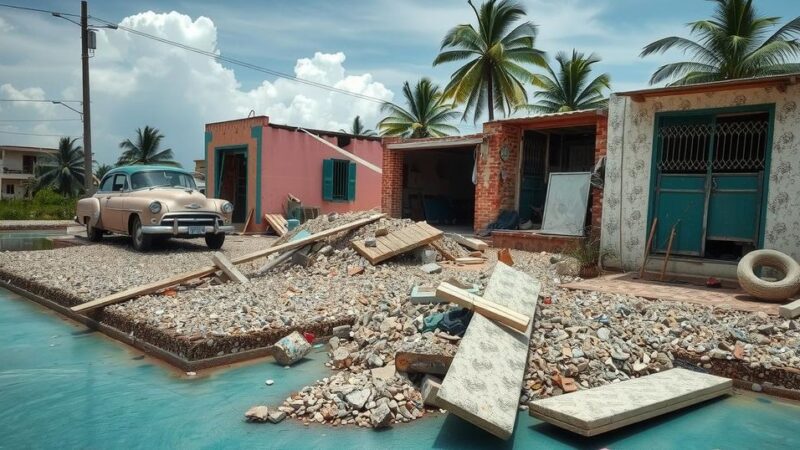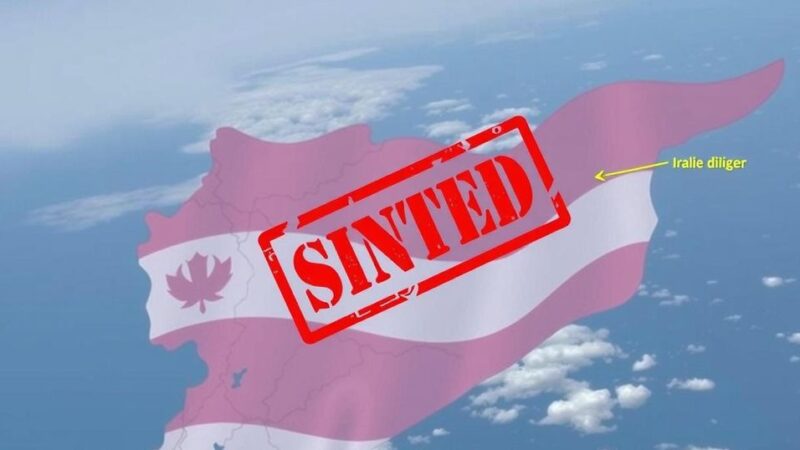Tropical Cyclone Chido, a category 4 storm, has caused significant devastation in the Southwest Indian Ocean, yielding at least 142 fatalities and extensive injuries. The cyclone impacted Madagascar, Comoros, Mayotte, Mozambique, and Malawi, with over 620,000 people affected in Mozambique alone. Ongoing humanitarian efforts include search and rescue and assistance provisions, emphasizing the importance of preparedness and resilience against future cyclonic events.
Tropical Cyclone Chido has emerged as a significant disaster in the Southwest Indian Ocean, marking the onset of what is expected to be a challenging cyclone season. Having intensified into a category 4 cyclone, Chido exhibited powerful winds reaching 220 km/h and a central pressure of 929 hPa. The cyclone’s aftermath has been devastating, with at least 142 confirmed deaths across Mozambique, Mayotte, and Malawi, coupled with injuries exceeding 3,300.
The cyclone’s initial impact was severely felt in Madagascar, where it approached the northern Diana Region, affecting approximately 135,838 individuals. The region experienced heavy infrastructure damage and severe flooding, which directly endangered crops, prompting governmental and Red Cross intervention for evacuations and warnings to at-risk communities. Furthermore, the Comoros declared a week of mourning as around 64,167 persons suffered from the cyclone’s catastrophic effects, particularly in Anjouan and Moheli.
In Mayotte, approximately 230,000 individuals—around 70 percent of the population—were affected, with about 35,000 homes obliterated and essential services disrupted due to damage to the main hospital and airport. Currently, about 100,000 displaced persons reside in temporary accommodations lacking basic necessities. Meanwhile, Mozambique reported that around 622,000 people have been impacted, with significant damage reported in Cabo Delgado and other provinces, deepening the vulnerability of communities already facing hardships.
Malawi also sustained damages, with nearly 45,000 individuals stranded in the wake of the cyclone’s remnants. Despite ongoing assessments to better understand the full extent of the damages, emergency responders are actively engaged in search and rescue, providing medical assistance, and facilitating family reunifications. The persistent threat of intense cyclones emphasizes the need for increased readiness and resilience strategies in vulnerable regions. This Emergency Appeal endeavors to mobilize necessary resources for humanitarian support while reinforcing the capabilities of local Red Cross and Red Crescent societies.
The Southwest Indian Ocean region is increasingly vulnerable to tropical cyclones, particularly as climate patterns predict an early and above-average cyclone season. Cyclone Chido is emblematic of this threat, exhibiting extreme meteorological characteristics. The cyclone’s development and its subsequent impact underscore the necessity for effective disaster preparedness and response mechanisms, particularly for regions historically at risk. The coordination of humanitarian efforts in the wake of natural disasters is paramount to mitigate loss and support affected communities.
The severe repercussions of Tropical Cyclone Chido highlight the urgent need for enhanced disaster management strategies and resources within the affected regions of Madagascar, Comoros, Mayotte, Mozambique, and Malawi. The increasing intensity and frequency of such climatic events necessitate a robust humanitarian response and community resilience initiatives to bolster preparedness for future cyclones and ensure comprehensive support for those in distress.
Original Source: reliefweb.int







